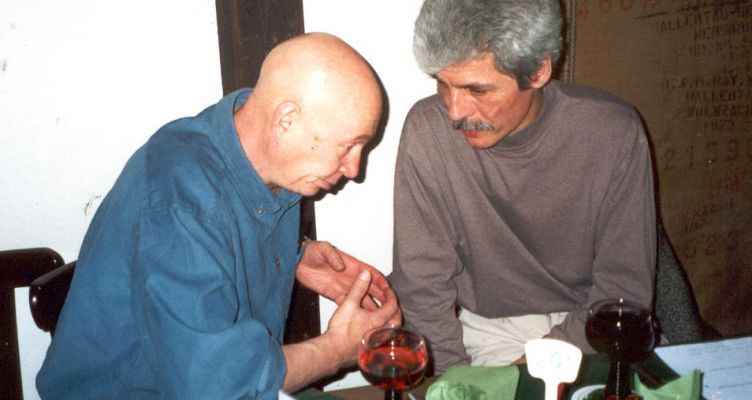A World of Cultures

A World of Cultures
Culture as Property in Anthropological Perspective
Max Planck Institute for Social Anthropology, Halle, July 1-2, 2002
Conference convened by Erich Kasten and Deema Kaneff
Edited volume: Properties of Culture – Culture as Property
Edited volume: Rebuilding Identities
Program
This workshop seeks to explore conceptions of culture as a form of property, that is, knowledge, practices and objects that are specific to, or associated with, certain groups and over which group members assert privileged claims. These (perceived) inalienable possessions may be ritual practices or specific economic activities. They can be objects with particular relevance for creating or maintaining identities of ethnic groups – often preserved in foreign museums - or they can be certain lands, interpreted in terms of a particular worldview as sacred sites. Relations of power, negotiations over 'ownership' of such property and legal concerns are never far from the surface.
One region in the world, where concepts of culture as property are relevant both in the present and foreseeable future is the Russian North, where indigenous groups are re-shaping and claiming possession of symbols of their particular identities. Comparison with other regions of the circumpolar North, where – in similar natural environments – Native peoples have shaped their particular concepts of cultural property according to their respective political histories, can be particularly instructive.
The workshop encourages more general concepts, for example, that between the circumpolar North or other parts of Eurasia. In the latter context, cultural property issues are less often expressed in terms of 'indigenous' group rights. The 'problem' of culture' as a form of property is, nevertheless, still relevant in terms of its commodification/objectification and the association of this process with identity construction and nation building. Here, too, postsocialist political and economic changes are often significant, although most of the key issues can also be explored in other parts of the world. Systematic comparisons that cross-cut thematically and regionally will help to draw out new conclusions about culture as a form property, and signpost future anthropological usages of both of these concepts.
A World of Cultures
Culture as Property in Anthropological Perspective
Max Planck Institute for Social Anthropology, Halle, July 1-2, 2002
Conference convened by Erich Kasten and Deema Kaneff
Edited volume: Properties of Culture – Culture as Property
Edited volume: Rebuilding Identities
Program
This workshop seeks to explore conceptions of culture as a form of property, that is, knowledge, practices and objects that are specific to, or associated with, certain groups and over which group members assert privileged claims. These (perceived) inalienable possessions may be ritual practices or specific economic activities. They can be objects with particular relevance for creating or maintaining identities of ethnic groups – often preserved in foreign museums - or they can be certain lands, interpreted in terms of a particular worldview as sacred sites. Relations of power, negotiations over 'ownership' of such property and legal concerns are never far from the surface.
One region in the world, where concepts of culture as property are relevant both in the present and foreseeable future is the Russian North, where indigenous groups are re-shaping and claiming possession of symbols of their particular identities. Comparison with other regions of the circumpolar North, where – in similar natural environments – Native peoples have shaped their particular concepts of cultural property according to their respective political histories, can be particularly instructive.
The workshop encourages more general concepts, for example, that between the circumpolar North or other parts of Eurasia. In the latter context, cultural property issues are less often expressed in terms of 'indigenous' group rights. The 'problem' of culture' as a form of property is, nevertheless, still relevant in terms of its commodification/objectification and the association of this process with identity construction and nation building. Here, too, postsocialist political and economic changes are often significant, although most of the key issues can also be explored in other parts of the world. Systematic comparisons that cross-cut thematically and regionally will help to draw out new conclusions about culture as a form property, and signpost future anthropological usages of both of these concepts.
A World of Cultures (Мир культур)
Culture as Property in Anthropological Perspective (Культура как собственность с антропологической точки зрения)
Институт социальной антропологии им. Макса Планка, г. Халле, 1-2 юля 2002 г. Конференция, созванная Эрихом Кастеном и Дема Канеф
Symbolbild auf Detailseite verwenden: not checked
